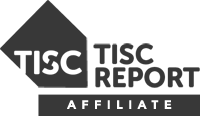Introduction
This statement sets out The Gelder Group’s actions to understand all potential modern slavery risks related to its business and to put in place steps that are aimed at ensuring that there is no slavery or human trafficking in its own business and its supply chains.
As part of the industry in which it operates, the organisation recognises that it has a responsibility to take a robust approach to slavery and human trafficking.
The organisation is absolutely committed to preventing slavery and human trafficking in its corporate activities, and to ensuring that its supply chains are free from slavery and human trafficking.
Organisational structure and supply chains
This statement covers the activities of The Gelder Group including:
- Gelder Group Holdings
- Gelder ltd
- Xeric
- Dewpoint
- Redline
- LoveDIY
- Gelder Homes (Ingham) Ltd
- Gelder Investments Ltd
- Design Space Architecture Ltd
- Gainsborough Home Improvements Ltd
The Gelder Group is a nationally trading construction company based in Lincolnshire, England.
Responsibility for the organisation’s anti-slavery initiatives is as follows:
- Policies: Designed by the Senior Management Team in conjunction with The Gelder Group’s HR Consultant, Beststart Human Resources, the companies policies contained within this handbook are reviewed annually, or more frequently in the event that new legislation is passed which might affect the Company’s activities or policies.
- Risk assessments: Carried out by the Senior Management Team when undertaking any new business in new industries, regions or countries.
- Investigations/due diligence: Carried out by the Senior Management Team as part of the due diligence process for any tenders for new business.
- Education/Awareness: Achieved by the publication of the Home Office Modern Slavery Awareness booklet, via Breathe HR, to all employees.
Relevant policies
The organisation operates the following policies that describe its approach to the identification of modern slavery risks and steps to be taken to prevent slavery and human trafficking in its operations:
- Whistleblowing policy The organisation encourages all its workers, customers and other business partners to report any concerns related to the direct activities, or the supply chains of, the organisation. This includes any circumstances that may give rise to an enhanced risk of slavery or human trafficking. The organisation’s whistleblowing procedure is designed to make it easy for workers to make disclosures, without fear of retaliation. For full details see the Whistleblowing Policy and Procedure in this handbook.
- Employee code of conduct The organisation’s code makes clear to employees the actions and behaviour expected of them when representing the organisation. The organisation strives to maintain the highest standards of employee conduct and ethical behaviour when operating abroad and managing its supply chain.
- Procurement code of conduct The organisation is committed to ensuring that its suppliers adhere to the highest standards of ethics. Suppliers are required to demonstrate that they provide safe working conditions where necessary, treat workers with dignity and respect, and act ethically and within the law in their use of labour. The organisation works with suppliers to ensure that they meet the standards of the code and improve their worker’s working conditions. However, serious violations of the organisation’s supplier code of conduct will lead to the termination of the business relationship.
Due diligence
The organisation undertakes due diligence when considering taking on new suppliers, and regularly reviews its existing suppliers. The organisation’s due diligence and reviews include:
- mapping the supply chain broadly to assess particular product or geographical risks of modern slavery and human trafficking;
- evaluating the modern slavery and human trafficking risks of each new supplier;
- reviewing on a regular basis all aspects of the supply chain based on the supply chain mapping;
- conducting supplier audits or assessments which have a greater degree of focus on slavery and human trafficking where general risks are identified;
- creating an annual risk profile for each supplier;
- taking steps to improve substandard suppliers’ practices, including providing advice to suppliers and requiring them to implement action plans;
- participating in collaborative initiatives focused on human rights in general, and slavery and human trafficking in particular; and
- invoking sanctions against suppliers that fail to improve their performance in line with an action plan or seriously violate our supplier code of conduct, including the termination of the business relationship.
—
Steve Gelder
Chief Executive Officer

Document date: 11th October 2024.
Questions?
If you have any questions about this document, please contact us.
